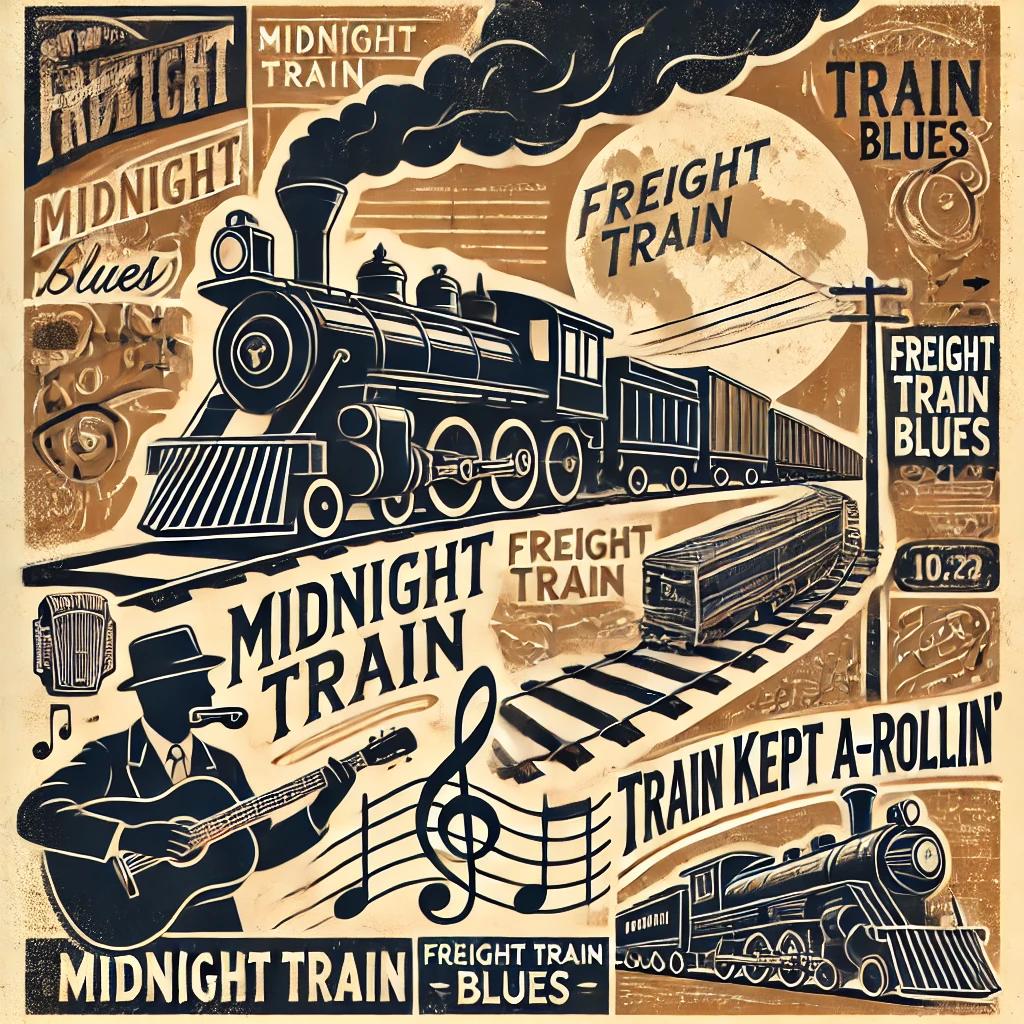Trains have been a recurring theme in music for over a century, appearing in genres as diverse as blues, folk, country, and rock. But why do trains hold such a special place in the hearts of songwriters and listeners alike? The answer lies in the deep symbolic, cultural, and emotional resonance that trains carry with them. This article will explore the reasons why trains have inspired so many famous train songs, diving into the historical and emotional significance of the locomotive.

The Historical Significance of Trains in Music
Trains as a Symbol of Freedom and Escape
In the early 20th century, trains were one of the primary modes of long-distance transportation. For many, they symbolized a means of escape from rural life or challenging personal situations. People took trains to seek better job opportunities, start new lives, or reunite with family.
In American folk and country music, this sentiment is clear. Trains provided the possibility of leaving behind poverty or hardship, which is reflected in classic songs like Johnny Cash’s “Folsom Prison Blues,” where the sound of a train triggers the imprisoned narrator’s yearning for freedom. Trains represented a ticket to a better life and a break from the familiar, offering both physical and emotional liberation.
The Role of Trains in the Great Migration
The influence of trains in African-American blues music is especially profound. During the Great Migration (1916–1970), millions of African-Americans moved from the rural South to Northern cities in search of better economic opportunities and freedom from racial segregation. Trains were the literal vehicle for this mass movement, and they became metaphors for change, loss, and hope.
Songs like “Love in Vain” by Robert Johnson capture the emotional complexity of this migration. In these songs, the train is often portrayed as a bittersweet force—both a means of escape and a reminder of the separation from loved ones left behind.
Emotional Themes Associated with Trains in Music
Loneliness and Longing
One of the most persistent themes in train songs is loneliness. Trains often evoke feelings of isolation, as they represent separation from loved ones. The image of a lone figure boarding a train or watching it pull away has been used to signify heartbreak and the inevitable passage of time.
For example, the classic country song “Midnight Train to Georgia” by Gladys Knight & the Pips tells the story of someone leaving their dreams behind, returning to a simpler life. The train is both a physical and emotional vehicle for moving away from ambition and returning to love, yet tinged with a sense of defeat.
Adventure and Discovery
While trains are often associated with departure and loss, they also symbolize adventure and exploration. For many songwriters, trains represent the possibility of new experiences and the thrill of the unknown.
Arlo Guthrie’s “City of New Orleans” captures this spirit, painting a picture of America’s vast, open landscapes and the lives of the people traveling through them. The rhythmic chugging of the train evokes movement and change, highlighting the transitory nature of life. In this context, trains offer a sense of curiosity and wonder about the world beyond one’s current horizon.
Why Trains Resonate Across Music Genres
Trains in Blues and Country
Blues and country music are deeply rooted in themes of hardship, displacement, and the search for freedom. The train’s connection to these emotions makes it a fitting motif in these genres. The repetitive clacking of a train’s wheels is often mirrored in the rhythms of blues and country songs, symbolizing the relentless movement of time and life.
For example, the “train beat,” a distinctive rhythmic pattern resembling the sound of a moving train, is a common feature in country music. It’s used to mimic the sound of wheels on tracks, underscoring the narrative of journeys—both physical and emotional.
Trains in Rock and Pop
In rock and pop music, trains often symbolize rebellion, freedom, and the open road. Bands like The Clash with “Train in Vain” and Soul Asylum with “Runaway Train” used the image of the train to represent youthful disillusionment and the desire to break away from societal constraints.
The iconic “Last Train to Clarksville” by The Monkees presents a more upbeat, pop-oriented take on the train motif, using it as a metaphor for romantic longing. The versatility of the train symbol makes it adaptable to many moods and genres, from somber reflection to carefree adventure.
The Enduring Appeal of Trains in Songwriting
Trains as a Metaphor for Life
At its core, the train is a powerful metaphor for life’s journey. It represents movement—both forward and backward—through time and space. The stops along the way signify pivotal moments in life, while the steady chugging evokes the inevitability of change. The train is an apt metaphor for transitions, departures, and new beginnings.
For songwriters, trains offer a rich landscape of emotional possibilities. Whether conveying loneliness, adventure, hope, or loss, the train remains a potent symbol that resonates with listeners across generations.
The Nostalgic Power of Trains
In an age where air travel and cars dominate, the train remains a nostalgic symbol of a slower, more romanticized era. Songs about trains often tap into this nostalgia, reminding listeners of a time when travel was more leisurely and filled with anticipation. The train represents a time when the journey itself was as important as the destination.
Conclusion: The Timelessness of Train Songs
Trains have an enduring place in the world of music because they are more than just a mode of transportation—they are symbols of life’s journey, representing freedom, adventure, loneliness, and nostalgia. Across genres and decades, trains continue to inspire songwriters and evoke powerful emotions in listeners, ensuring their place in the canon of timeless music.
As long as there are stories of departure, discovery, and longing to be told, there will be songs about trains.

